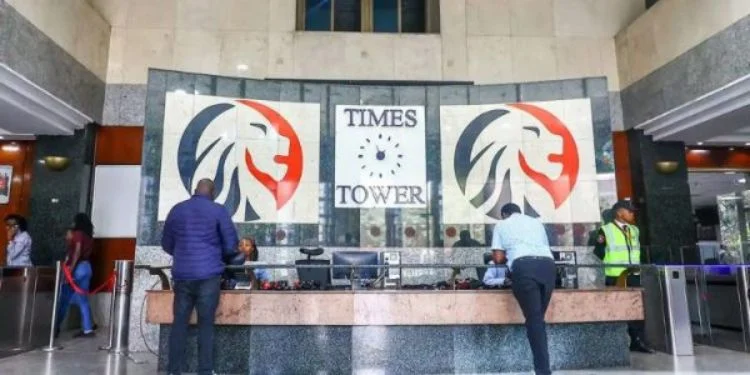The Trump administration has executed an extraordinary $20 billion financial rescue package for Argentina, a move that critics across the political spectrum are characterizing as politically motivated rather than driven by legitimate economic necessity or clear American strategic interests. The bailout has ignited fierce debate about the appropriate use of taxpayer dollars, particularly given the current domestic political and economic context.
This substantial intervention means that $20 billion in US taxpayer resources will be deployed to stabilize the economy of a country led by Javier Milei, the chainsaw-wielding libertarian president who has cultivated a conspicuously close personal relationship with President Donald Trump and has become something of an ideological ally on the global stage.
Build the future you deserve. Get started with our top-tier Online courses: ACCA, HESI A2, ATI TEAS 7, HESI EXIT, NCLEX-RN, NCLEX-PN, and Financial Literacy. Let Serrari Ed guide your path to success. Enroll today.
Treasury Secretary Defends Emergency Intervention
“Argentina faces a moment of acute illiquidity,” Treasury Secretary Scott Bessent wrote on X (formerly Twitter) on Thursday, framing the intervention as an urgent economic necessity. “The US Treasury is prepared, immediately, to take whatever exceptional measures are warranted to provide stability to markets.”
The declaration came as the US federal government approaches two weeks of being shut down, resulting in more than a million federal workers being furloughed or working without pay. Simultaneously, American businesses and agricultural producers continue to experience severe economic disruption from Trump’s aggressive and escalating trade war with China and other major trading partners, creating a jarring contrast between the administration’s priorities.
Argentina’s Economic Crisis: Background and Context
Argentina finds itself teetering on the precipice of a comprehensive financial collapse, facing what economists describe as a perfect storm of currency instability, investor confidence erosion, and political uncertainty. The country’s peso fell sharply and dramatically after President Milei’s political party suffered a significant and unexpected defeat in legislative elections last month, an outcome that fundamentally shook investors’ confidence in Milei’s ability to maintain political support necessary to see through his ambitious and controversial economic reform program.
Since taking office in December 2023, Milei has pursued an aggressive libertarian economic agenda that includes slashing government spending across virtually all sectors, eliminating or significantly cutting regulations across industries, and firing tens of thousands of public-sector workers in an effort to reduce what he characterizes as bureaucratic bloat. His administration’s shock therapy approach has generated intense controversy domestically, with street protests from affected workers and social welfare recipients contrasting with enthusiasm from business sectors and international investors.
Despite the social turmoil and political opposition his policies have generated, Milei’s administration has achieved some measurable macroeconomic success. Inflation in Argentina eased this year to the slowest monthly pace in more than four years, a significant achievement in a country that has experienced hyperinflationary episodes and chronic currency instability for decades. Annual inflation, while still high by global standards, has declined from catastrophic levels that were destroying savings and making economic planning impossible.
The Administration’s Rationale: Contagion and Geopolitical Concerns
The Trump administration has constructed a two-pronged justification for this extraordinary financial intervention. First, administration officials have argued that Argentina’s financial distress could trigger contagion effects that spill over into other Latin American economies and potentially into global financial markets if the crisis is not contained swiftly and decisively.
Argentina represents a major economy within South America, with significant trade relationships, financial linkages, and economic influence across the region. A disorderly Argentine default or currency collapse could potentially destabilize neighboring economies, trigger capital flight from emerging markets more broadly, and create uncertainty in global commodity markets where Argentina plays an important role as an agricultural exporter.
Second, and perhaps more significantly from a strategic perspective, administration officials have expressed concerns about the risk of Argentina strengthening its economic and political ties with China if the United States does not provide support. China has actively cultivated relationships across Latin America in recent years, offering infrastructure financing, trade relationships, and political support to countries that have sometimes felt marginalized by US policy priorities.
The specter of China expanding its influence in what the United States has historically considered its sphere of influence in the Western Hemisphere appears to have weighed heavily in the administration’s decision-making calculus. Keeping Argentina firmly within the US economic and political orbit represents a strategic priority that extends beyond purely economic considerations.
The timing is particularly sensitive given that Argentina’s next legislative elections are scheduled for October 26, just weeks away. The bailout’s timing has raised questions about whether the intervention is designed specifically to boost Milei’s political fortunes ahead of these crucial elections.
Mechanics of the Bailout: Currency Swaps and Direct Purchases
On Thursday, Treasury Secretary Bessent confirmed through social media that Argentina’s bailout would proceed through two distinct but complementary financial mechanisms, both of which represent extraordinary and relatively rare interventions in foreign currency markets.
First, Bessent announced that the administration has finalized a $20 billion currency swap agreement with Argentina’s central bank, known as the Banco Central de la República Argentina (BCRA). This swap arrangement allows the Argentine central bank to exchange its local currency, the peso, for US dollars at predetermined rates, providing the country with immediate access to hard currency reserves that can be used to defend the peso’s value, meet debt obligations, and restore confidence among investors and the general public.
Financial experts characterize this swap arrangement as essentially functioning as a $20 billion loan to Argentina, though structured through currency exchange mechanisms rather than traditional loan instruments. The swap provides Argentina with immediate liquidity while theoretically protecting US interests through the reciprocal nature of the arrangement.
Second, and more unusually, Bessent revealed that the administration has “directly” purchased an undisclosed amount of Argentine pesos in foreign exchange markets. This represents only the fourth time since 1996 that the United States has directly purchased another country’s currency, according to data from the Federal Reserve Bank of New York. Such direct currency interventions are extraordinarily rare and typically reserved for moments of severe financial crisis or when core strategic interests are at stake.
These combined measures aim to stabilize Argentina’s volatile financial markets by increasing demand for the peso, providing the Argentine government and central bank with dollar reserves to meet obligations and defend the currency, and signaling to investors that the United States stands behind Argentina’s economic program and will not allow a disorderly collapse.
One decision can change your entire career. Take that step with our Online courses in ACCA, HESI A2, ATI TEAS 7, HESI EXIT, NCLEX-RN, NCLEX-PN, and Financial Literacy. Join Serrari Ed and start building your brighter future today.
The Controversy: Politics, Timing, and Questionable Priorities
While the United States has provided financial lifelines to foreign countries during previous administrations, these interventions have typically occurred under specific circumstances: when the stability of the global financial system appeared genuinely threatened, when a close geopolitical ally with significant economic ties to the United States (such as Mexico during various crises) found itself in severe distress that could directly damage US creditors and investors, or when US national security interests were clearly and immediately at stake.
The Argentine bailout differs from these historical precedents in several crucial respects that have fueled controversy. Critics argue that this intervention is not genuinely urgent from a global economic stability perspective, is occurring at an awkward and politically sensitive time when the US government itself is shut down, and appears designed primarily to prop up one of President Trump’s personal political allies rather than to address clear American economic or security interests.
“The Treasury’s decision to offer a ‘swap’ in Argentina is really a signal that Washington is willing to wield its financial tools for political purposes in ways that depart from past norms,” wrote Heidi Crebo-Rediker, a former chief economist at the State Department, and Douglas Rediker, a former US representative on the International Monetary Fund’s executive board, in a Financial Times column published on October 2.
The optics of the bailout are particularly problematic given that it is proceeding while the US government remains shut down, a situation that has resulted in more than a million federal workers being furloughed or forced to work without pay. Essential government services have been disrupted, national parks and monuments have closed, and federal agencies have curtailed operations, yet the administration has found resources to bail out a foreign government.
“It is inexplicable that President Trump is propping up a foreign government, while he shuts down our own,” Democratic Senator Elizabeth Warren of Massachusetts said in a sharply worded statement on Thursday. “Trump promised ‘America First,’ but he’s putting himself and his billionaire buddies first and sticking Americans with the bill.”
Agricultural Sector Suffers Double Blow
The bailout’s impact extends beyond abstract debates about foreign policy priorities and appropriate use of federal resources. American farmers, particularly soybean producers in the Midwest, have found themselves caught in what amounts to a one-two punch directly resulting from Trump administration policies.
American agricultural producers are experiencing an exceptionally difficult year, due in no small part to Trump’s ongoing bid to fundamentally reshape global trade relationships through aggressive tariff policies and trade confrontations. China, historically the largest foreign buyer of US soybeans, halted purchases of the commodity in May in direct response to Trump’s escalating trade war and the tariff regime he has imposed on Chinese goods.
This loss of the crucial Chinese market has devastated soybean prices and left American farmers struggling with unsold inventory, plummeting revenues, and an uncertain future. The agricultural sector, which had been a reliable Trump supporter in previous elections, has grown increasingly frustrated with trade policies that have cost them their most important export market.
The Argentine bailout has inadvertently compounded these agricultural difficulties in ways that have provoked outrage even among Republican lawmakers from farming states. After Argentina temporarily eliminated export taxes on grains as part of Milei’s deregulatory agenda, China responded by swooping in and purchasing tens of thousands of tons of Argentine soybeans instead of American ones, directly benefiting from the competitive advantage created by the removal of Argentine export taxes.
“Why would USA help bail out Argentina while they take American soybean producers’ biggest market???” wrote Republican Senator Chuck Grassley of Iowa, a major soybean-producing state, on X on September 25. “We shld use leverage at every turn to help hurting farm economy Family farmers shld be top of mind in negotiations by representatives of USA.”
Grassley’s criticism is particularly significant because it comes from a senior Republican senator who has generally supported Trump’s agenda, illustrating how the bailout has created tensions even within the president’s own political coalition.
Who Benefits: Beyond Argentina
Beyond President Milei, Argentina’s treasury, and potentially China (which gains access to cheaper Argentine agricultural commodities), critics have identified other specific beneficiaries of the bailout whose gains raise ethical and political questions about the administration’s true motivations.
The bailout stands to deliver substantial financial windfalls to wealthy hedge fund managers and institutional investors who are major holders of Argentine debts and financial assets. These investors, who had purchased Argentine bonds and other securities at distressed prices, betting on an eventual recovery or bailout, stand to profit enormously if Argentina avoids default and asset prices recover.
Particularly controversial is the situation involving Rob Citrone, a billionaire hedge fund manager with extensive and well-documented investments in Argentine securities and assets. According to independent journalist Judd Legum, who has investigated the connections, “Bessent’s personal and professional relationship with Citrone has spanned decades,” raising questions about whether personal relationships influenced policy decisions involving billions in taxpayer dollars.
The appearance that Treasury Secretary Bessent may be using his official position to benefit a long-time personal associate and fellow Wall Street insider has fueled accusations of corruption and cronyism that extend beyond typical partisan political disagreements.
Senator Warren’s statement Thursday explicitly connected these concerns: “Trump promised ‘America First,’ but he’s putting himself and his billionaire buddies first and sticking Americans with the bill.” Eight Democratic senators, including Warren, have introduced legislation in Congress specifically designed to prevent Argentina’s bailout from proceeding, though the bill faces uncertain prospects in a divided Congress.
Administration’s Defense: Strategic Interests
Treasury Secretary Bessent has vigorously pushed back against accusations that the bailout primarily serves to enrich wealthy American investors with Argentine holdings. Speaking to CNBC recently, Bessent dismissed what he characterized as unfair criticism: “This trope that we’re helping out wealthy Americans with interest down there couldn’t be more false.”
“What we’re doing is maintaining a US strategic interest in the Western Hemisphere,” Bessent added, emphasizing the geopolitical rationale for the intervention. “We cannot allow a major South American economy to fall into chaos or, worse, into Beijing’s orbit.”
Administration officials have pointed to historical precedents of US financial interventions in Latin America, arguing that maintaining stability in the Western Hemisphere has long been a core American strategic interest. They contend that the relatively modest cost of this bailout, measured against potential geopolitical consequences of an Argentine collapse and realignment toward China, represents a prudent investment in American influence and security.
However, critics counter that these strategic justifications could be invoked to rationalize interventions in virtually any foreign country’s economy, effectively eliminating any meaningful limits on executive authority to deploy taxpayer resources for foreign bailouts based on subjective assessments of strategic interests.
Broader Implications and Future Concerns
The Argentine bailout establishes potentially concerning precedents for future US economic diplomacy and foreign policy. If presidents can unilaterally commit billions in taxpayer resources to bail out friendly foreign governments based primarily on personal relationships and broadly defined “strategic interests,” congressional oversight and budget authority could be effectively circumvented.
The intervention also raises questions about consistency in US policy. While the administration has been willing to deploy $20 billion to stabilize Argentina’s economy, it has shown considerably less willingness to provide domestic economic support for struggling American industries and communities affected by trade policies, the pandemic’s lingering effects, and structural economic changes.
The timing of the bailout, occurring just weeks before crucial Argentine elections, unavoidably creates the appearance that US taxpayer resources are being used to influence foreign electoral outcomes in favor of Trump’s preferred candidate. While the United States has historically engaged in various forms of influence operations, doing so openly through massive financial transfers represents a departure from traditional approaches.
Conclusion
The Trump administration’s $20 billion bailout of Argentina represents one of the most controversial foreign economic policy decisions in recent American history. While framed by officials as a necessary intervention to prevent financial contagion and preserve US strategic interests in Latin America, critics across the political spectrum have characterized it as a politically motivated use of taxpayer resources to benefit a presidential ally and well-connected Wall Street investors.
The timing of the bailout, occurring while the US government remains shut down and American farmers suffer from trade policy decisions, has created particularly damaging optics and raised fundamental questions about the administration’s priorities. Whether this intervention ultimately proves justified will depend on how Argentina’s economy and politics evolve in the coming months and whether broader strategic benefits materialize.
For now, the bailout stands as a stark example of how foreign policy, personal relationships, financial interests, and domestic politics can become entangled in ways that challenge traditional notions of appropriate governance and use of public resources. As the debate continues, it highlights fundamental questions about executive authority, congressional oversight, and the proper boundaries of American economic intervention in foreign countries.
Ready to take your career to the next level? Join our Online courses: ACCA, HESI A2, ATI TEAS 7 , HESI EXIT , NCLEX – RN and NCLEX – PN, Financial Literacy!🌟 Dive into a world of opportunities and empower yourself for success. Explore more at Serrari Ed and start your exciting journey today! ✨
Track GDP, Inflation and Central Bank rates for top African markets with Serrari’s comparator tool.
See today’s Treasury bonds and Money market funds movement across financial service providers in Kenya, using Serrari’s comparator tools.
Photo source: Google
By: Montel Kamau
Serrari Financial Analyst
13th October, 2025
Article, Financial and News Disclaimer
The Value of a Financial Advisor
While this article offers valuable insights, it is essential to recognize that personal finance can be highly complex and unique to each individual. A financial advisor provides professional expertise and personalized guidance to help you make well-informed decisions tailored to your specific circumstances and goals.
Beyond offering knowledge, a financial advisor serves as a trusted partner to help you stay disciplined, avoid common pitfalls, and remain focused on your long-term objectives. Their perspective and experience can complement your own efforts, enhancing your financial well-being and ensuring a more confident approach to managing your finances.
Disclaimer: This article is for informational purposes only and does not constitute financial advice. Readers are encouraged to consult a licensed financial advisor to obtain guidance specific to their financial situation.
Article and News Disclaimer
The information provided on www.serrarigroup.com is for general informational purposes only. While we strive to keep the information up to date and accurate, we make no representations or warranties of any kind, express or implied, about the completeness, accuracy, reliability, suitability, or availability with respect to the website or the information, products, services, or related graphics contained on the website for any purpose. Any reliance you place on such information is therefore strictly at your own risk.
www.serrarigroup.com is not responsible for any errors or omissions, or for the results obtained from the use of this information. All information on the website is provided on an as-is basis, with no guarantee of completeness, accuracy, timeliness, or of the results obtained from the use of this information, and without warranty of any kind, express or implied, including but not limited to warranties of performance, merchantability, and fitness for a particular purpose.
In no event will www.serrarigroup.com be liable to you or anyone else for any decision made or action taken in reliance on the information provided on the website or for any consequential, special, or similar damages, even if advised of the possibility of such damages.
The articles, news, and information presented on www.serrarigroup.com reflect the opinions of the respective authors and contributors and do not necessarily represent the views of the website or its management. Any views or opinions expressed are solely those of the individual authors and do not represent the website's views or opinions as a whole.
The content on www.serrarigroup.com may include links to external websites, which are provided for convenience and informational purposes only. We have no control over the nature, content, and availability of those sites. The inclusion of any links does not necessarily imply a recommendation or endorsement of the views expressed within them.
Every effort is made to keep the website up and running smoothly. However, www.serrarigroup.com takes no responsibility for, and will not be liable for, the website being temporarily unavailable due to technical issues beyond our control.
Please note that laws, regulations, and information can change rapidly, and we advise you to conduct further research and seek professional advice when necessary.
By using www.serrarigroup.com, you agree to this disclaimer and its terms. If you do not agree with this disclaimer, please do not use the website.
www.serrarigroup.com, reserves the right to update, modify, or remove any part of this disclaimer without prior notice. It is your responsibility to review this disclaimer periodically for changes.
Serrari Group 2025
















